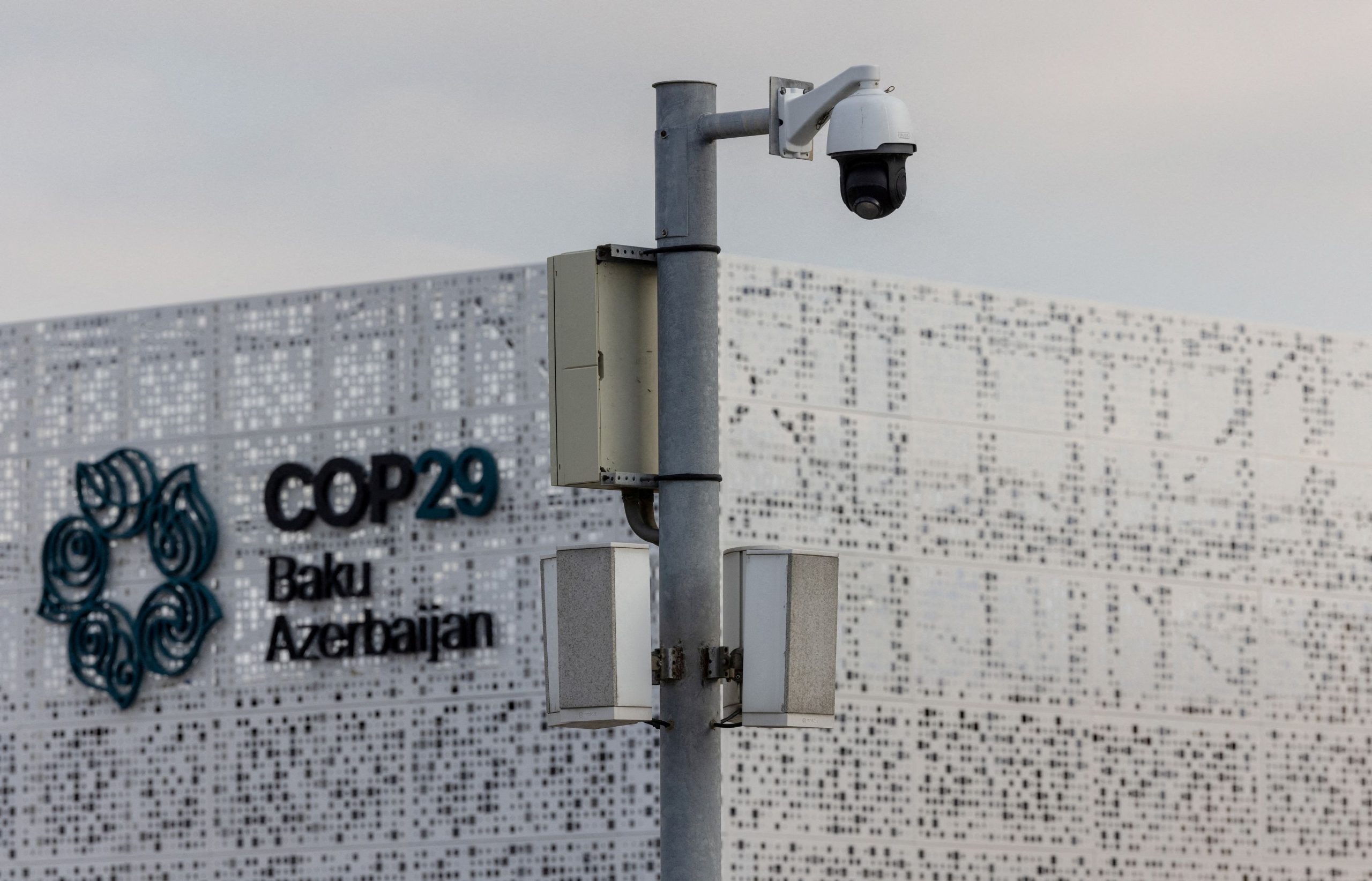The 29th United Nations Climate Conference (COP29) kicked off in Azerbaijan’s capital of Baku on Monday.
Delegations from nearly 200 countries gathered once again for a two-week long agenda of meetings, panels, discussion, events and more.
The Summit comes after a year of instability, including devastating weather phenomena, economic volatility, ongoing conflicts in Ukraine and Gaza, and the recent re-election of Donald Trump as U.S. President, who has been a vocal climate change skeptic.

A general view shows attendees on the day of the United Nations climate change conference COP29 opening in Baku, Azerbaijan November 11, 2024. REUTERS/Maxim Shemetov
Here’s some useful information on the Summit.
What exactly is the COP?
COP, short for Conference of Parties, is the world’s largest annual gathering focused on climate action from almost every nation. It has been held every year since the United Nations Framework for Climate Change (UNFCC) treaty was adopted in 1992. The UNFCC committed nearly 200 countries to fighting global warming and the secretariat set up to implement that treaty when it took effect in 1994.

COP29 official website
Last year’s summit was held in the United Arab Emirates, while the COP30 will be hosted by Brazil.
What’s on the agenda for COP29?
The COP29 agenda is focused on achieving new climate finance goals, accelerating greenhouse gas reductions, and advancing national climate plans (NDCs) that support the global aim of limiting warming to 1.5 degrees Celsius.
Delegates are particularly focused on securing an agreement to increase annual climate finance to up to $1 trillion for developing nations, a target much higher than last year’s $100 billion, following a year of severe weather events that have strengthened these countries’ calls for more financial support.

COP29 official website
This year’s host has positioned itself as a promoter of both gas as a transition fuel and a move towards renewable energy.

COP29 official website
Azerbaijan has pledged to raise its share of renewable energy to 35% of its power capacity by 2030, up from 20% last year. Presidential aide Hikmet Hajiyev highlighted Azerbaijan’s pivot towards exporting green energy, framing it as part of the nation’s commitment to climate goals.
Despite its focus on climate and energy policy, Azerbaijan has faced criticism over human rights issues, including the imprisonment of political opponents and ethnic Armenians labeled as separatists. President Ilham Aliyev has countered such criticism, arguing it risks derailing peace efforts between Azerbaijan and Armenia.



